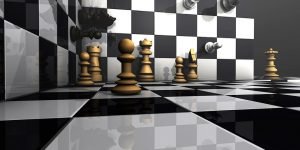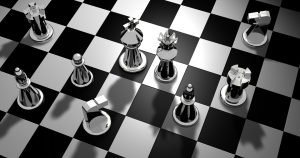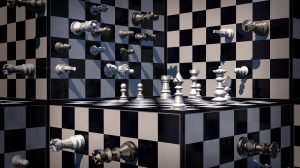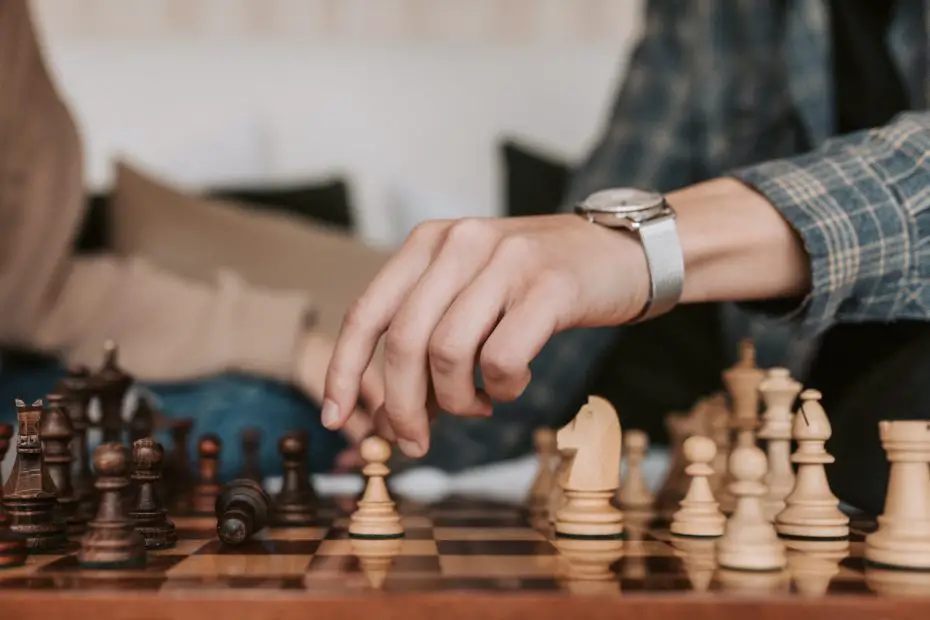Chess is a strategic game that entails careful calculation, good positional understanding, great tactical vision, and visualization skills.
Chess strategy is a very important aspect of the game that must be mastered in order to be an advanced player.

Table of Contents
Basics of Chess Strategy
Chess can be divided into two parts namely: chess strategy and chess tactics.
Chess tactics mainly revolve around winning your opponent’s material while chess strategy deals with the subtle details of a position.
For example, pawn structure, open files, weak squares, isolated pawns are all elements of chess strategy.
Chess strategy is all about making plans, assessing your chances, going for it, all in an attempt to slowly dominate and defeat your opponent.
There are some basic strategical principles that every beginner chess player should be aware of as these form the basis of the whole game.
These principles are divided into three: Principle of Development, Principle of Activity, and Principle of Material.
1. Principle of Development

Many times, beginners and learners in chess ignore the development of their chess pieces and are more focused on pushing pawns.
This is a very faulty chess strategy that your opponent can use against you.
In a chess game, after the first one or two pawn opening moves, minor pieces such as the bishop and knights should be developed quickly.
The aim is to keep your pieces active and ready for any engagements.
After that, Castling should be the next option so as to protect your king properly and develop your rooks.
The queen should not be brought out early in the game as your opponent can gain useful tempo by attacking the queen with minor pieces, instead, the queen should be developed during the middle game.
The king should be developed only when there are fewer chess pieces on the board as it is a fighting piece in the endgame.
2. Principle of Activity

The main guiding principle of a chess game is “Activity”.
Chess strategy demands that you keep your chess pieces active and useful.
Every chess piece should be placed in squares where they exert maximum pressure on the opponent’s camp as the position of a piece determines its activity.
For example, Knights are very active in outposts and weak squares.
A Knight on the sixth or third rank is popularly known as an “octopus” due to its dominating presence in the opponent’s camp.
In the same vein, Rooks ( especially when they are doubled) are very active on open files and on the opponent’s seventh/second ranks.
Bishops need clear diagonals to become active and they can exert considerable pressure from a distance.
3. Principle of Material

To become a better player, it is very essential to understand the concept of material and exchanges in chess.
Many beginners most times do not know what piece to exchange and what piece to defend as they don’t understand the material factor in chess strategy.
Having more material on the board than your opponent means you have more options available.
There are more opportunities to attack, more pieces to defend, and you have adequate control of the board.
Not all pieces have the same material value, so it’s important to understand the value of different chess pieces to do better.
The list below shows the different chess pieces and their respective value points:
- Pawn = 1
- Knight = 3
- Bishop = 3
- Rook = 5
- Queen = 9
This means that you should not exchange your queen for your opponent’s rook or your bishop for your opponent’s pawn without any significant compensation.
It’s essential to know which chess piece to exchange and the one to be preserved when playing a game of chess, the list above can give you a very good idea of how to achieve that.
Note that the king’s value is not included here because the king is a piece that does not leave the board.
It can only be checkmated.
The King can probably be said to be of infinite value as the game is over once the king is captured and checkmated.
